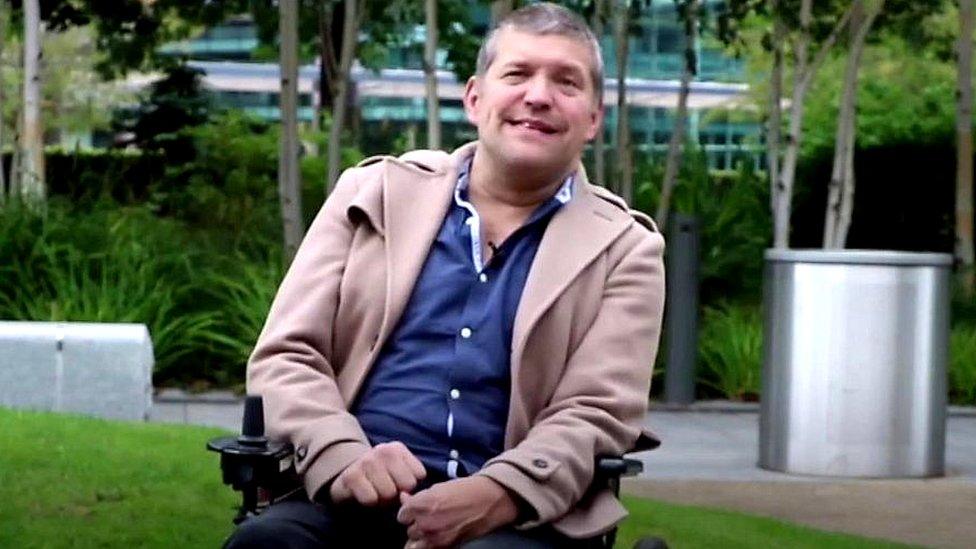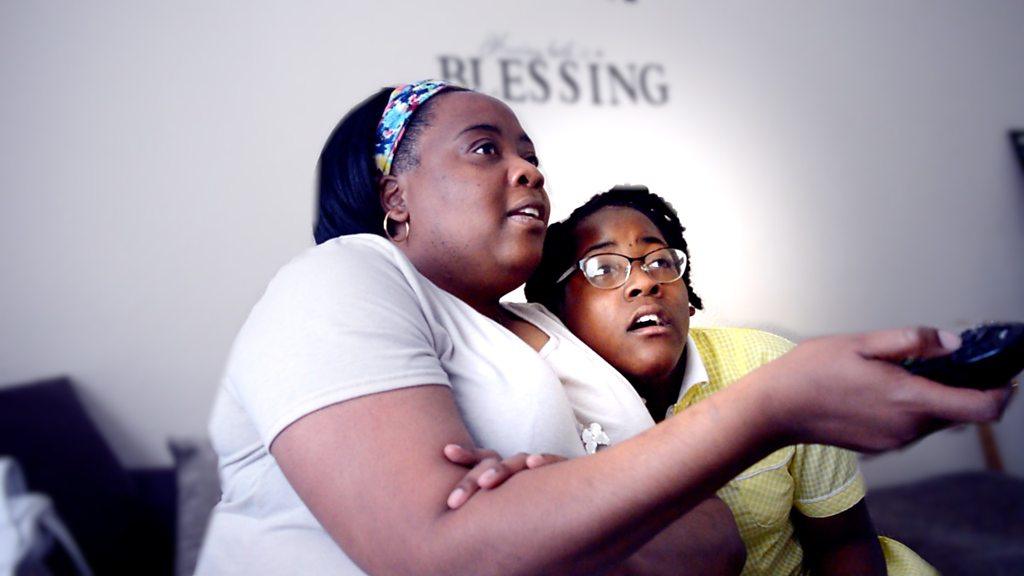Bristol disabled cyclist accused of 'riding drunk'
- Published

Nik Royale, who has cerebral palsy, said: "I don't have a choice as to whether I wobble and slur my words"
A cyclist accused of riding while drunk says he "won't stand for" his disability being mistaken for drunkenness.
Nik Royale asked a passing cyclist for help after finding himself "a bit lost" on a track in Bristol but was told to "go home as I should not ride drunk".
Mr Royale, who has cerebral palsy, said: "I don't have a choice as to whether I wobble and slur my words."
"People assume and this is just not fair," he added.
"I am damned if I am going to wear a T-shirt that says 'I've got cerebral palsy' in Bristol - there would not be enough room on the t-shirt to explain all the symptoms," he said.
Mr Royale, who is known as Dolphin, said he had borrowed a bike from a friend as he wanted to go and see the Lord Nelson ship in Cumberland Basin at 09:00 BST on Thursday.
He said he stopped on the way to ask another cyclist for directions, who told him the way but also suggested he should not be riding a bike while drunk.

Nik Royale is also an experienced climber and ambassador for disabled sports and rights
Mr Royale said he was disappointed because he has always felt fairly treated in Bristol.
"Bristol has a nice big bubble around it as far as the way Bristolians treat disabled people - it's amazing - and I won't let this guy burst it but this kind of thing has to stop," he said.
"I'm not afraid to speak out about discrimination but a lot of people either don't talk or can't.
"People should not be afraid to ask whether someone has a disability or not, but on the other hand people with disabilities should not take it personally if asked in a respectful way," he said.
'Appalling'
Ed Holloway, from the MS Society, said: "It's appalling to hear about Nik's experience. Unfortunately, this is all too common for people with MS too.
"MS damages nerves in your body and makes it harder to do things, like walk, talk, eat and think.
"Discrimination can make life even harder for people living with an unpredictable condition like MS, and greater public awareness of what symptoms look like is desperately needed. No one should have to put up with this type of mistreatment."
- Published11 October 2019

- Published20 September 2019

- Published1 August 2019

- Published14 February 2018
